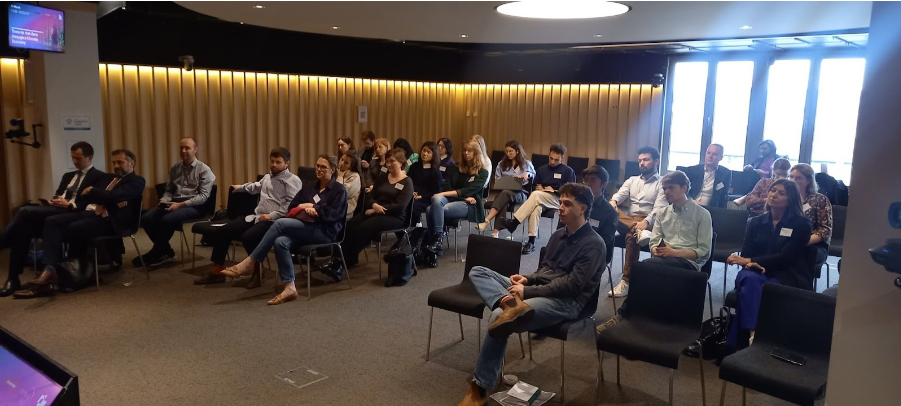
PRISMA, in collaboration with fellow EU Horizon project CircEUlar, held a stakeholder workshop on 14 March 2024 titled Towards net-zero through a circular economy. The event, co-organised by Bruegel and T6, took place at Bruegel’s offices in Brussels. It brought together experts and decision-makers from industry, policy, and civil society to discuss circular strategies in digitalisation, mobility, and buildings.
The event opened in a plenary with insightful presentations from research partners on the potential role of circularity in working towards net-zero greenhouse gas emissions in Europe, and how CircEUlar and PRISMA are bringing research from different disciplines together to tackle this question. Further presentations looked in depth at digitalisation as an enabler for circular economy and net-zero strategies, mobility as an aspect of everyday life in which circularity can be fostered through social and material changes, as well as buildings’ and household services’ enduring role in emissions and the need for accurate data to promote circularity in the built environment.
The plenary was followed by a lunch break during which participants were encouraged to network and engage with “food for thought” questions linked to the information presented. After lunch, participants were split into three break-out groups focusing on digitalisation, mobility, and buildings, where potential narratives for a future net-zero Europe were discussed. Participants identified the key actions, challenges and opportunities presented by various approaches towards a circular economy and highlighted cross-cutting themes that could be further explored in the projects going forward.
Some of the key takeaways to feed into the research framework and circular economy narratives were to:
- Ensure that actions suggested are low-risk and as easy to implement as possible for citizens and organisations,
- Not underestimate the lifestyle changes being asked of citizens and consumers, which may be both an opportunity and a challenge for implementing more circular actions,
- Address the need to cultivate new social and legal norms,
- Think about how rural and suburban areas can be incentivized to adopt circular practices,
- Ensure that the political and policy landscape is primed for the specific circular actions proposed,
- Embed circular design in products from the start,
- Consider the role which standards can play in fostering changes towards circularity (e.g., LCA, ISO)
- Capitalise on cross-product, cross-country and cross-industry initiatives like Extended Product Responsibility rather than working in silos, and…
“Developing a better understanding of the issues that companies, industry associations, policy makers, and different civil society actors factors face on the ground was extremely useful to improve the framing and utility of our research over the next couple of years”, summarises Volker Krey, research group leader at IIASA who is involved in both projects.
The exchange of ideas, best practice examples, and collaboration across sectors achieved resulted in a wealth of additional insights that will inform and enhance the research in both the PRISMA and CircEUlar projects.
This meeting is part of a project that has received funding from the European Union’s Horizon Europe programme under grant agreement No 101081604 – PRISMA.
Views and opinions expressed are however those of the speaker(s) only and do not necessarily reflect those of the European Union or the European Climate, Infrastructure and Environment Executive Agency (CINEA). Neither the European Union nor the granting authority can be held responsible for them.
